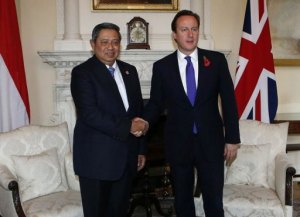By Gary Hogan — The 21 February slaying of eight soldiers in two separate incidents by anti-government rebels in Indonesia’s troubled Papua province sent shock waves through Jakarta’s presidential palace, as well as the country’s national defence headquarters in nearby Cilangkap.
It was the largest number of military security forces killed in a single day in the restive province, which borders Papua New Guinea.The shock was felt as far away as Canberra, since Jakarta’s adroit handling of its separatist problem in Papua is crucial to our ability to progress bilateral relations with Indonesia.
Australia’s ambassador in Jakarta was the first foreign official to extend condolences and to reaffirm Australia’s unequivocal commitment to Indonesian sovereignty over Papua. Canberra knows it would be impossible to engage Jakarta in a comprehensive strategic partnership without a mature and unfettered relationship with Indonesia’s powerful defence forces, Tentara Nasional Indonesia or TNI.
Any undisciplined retaliatory conduct by TNI elements in Papua, such as random reprisals for the eight deaths, would weigh heavily on the current upward trajectory in both our defence and broader bilateral relations. Fortunately, there is cause for optimism that, at least at the top, TNI might adopt some fresh thinking about Papua and the international ramifications of an ongoing cycle of violence.
Nobody is more aware of the potential for an arbitrary, heavy-handed overreaction by security forces in Papua to tarnish Indonesia’s international image than President Susilo Bambang Yudhoyono. He has done a great deal in the past eight years as president to try to improve Indonesia’s global standing on human rights, investing in security sector reform and attempting to consolidate democracy and economic prosperity.
In Papua, Yudhoyono has promised a new approach based on building a stronger, fairer and more inclusive economy. His key man on the ground is retired general Bambang Darmono, a respected and experienced soldier and diplomat who played an important role in the successful Aceh peace process.
But Darmono, who the president has charged with overseeing a fast-track development plan for Papua, faces an uphill battle. Indonesia lacks a clear strategy for pacifying Papua, partly because Jakarta focuses on economics when many Papuans cry for political dialogue.
Moreover, the search for a solution is frustrated by poor coordination and an absence of imagination among government departments, factionalism and corruption in Papua itself, where vested interest is fueled by the prospect of limitless resource wealth, and a reactionary streak in some Jakarta elites, who refuse to even countenance the term ‘indigenous’ because it implies special rights.
Fallout from the 21 February shootings is still on the cards. The Free Papua Movement (OPM) is proving itself a learning organisation. Recent rebel actions demonstrate an ability to conduct reconnaissance, detect patterns, use intelligence effectively in planning and exploit poor operational security. The OPM now appears capable of moving beyond its basic hit and run tactics of the past. Incidents like the two which killed eight Indonesian soldiers last month could continue and even escalate.
In dealing with the Papua problem, Indonesia has occasionally demonstrated a disconnection between operational directions from Jakarta and tactical actions in the field. This will need to improve under TNI’s emerging leaders, and there are promising signs it might.
Gary Hogan was the first foreigner to graduate from Indonesia’s Institute of National Governance (Lemhannas) and was Australia’s Defence Attaché to Indonesia from 2009 to 2012.
Source: The Interpreter







